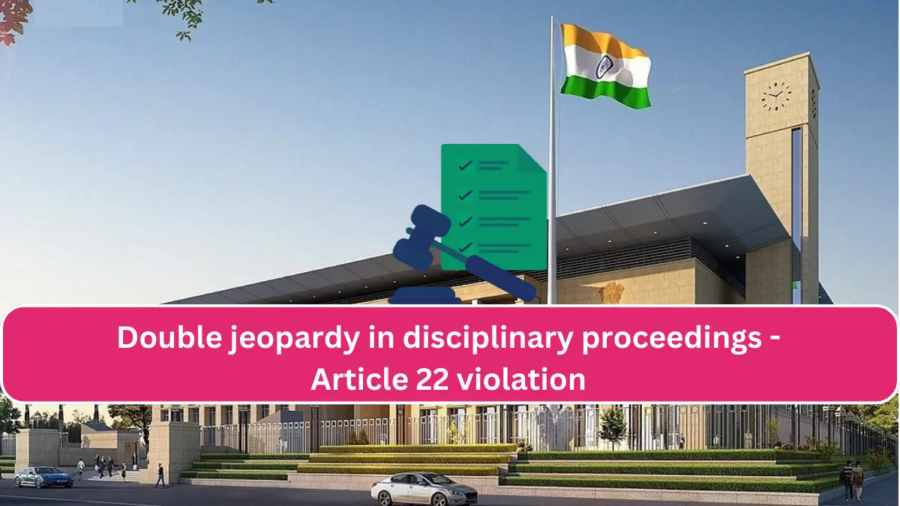Introduction:
The Andhra Pradesh High Court, in a recent judgment, held that imposing two punishments for the same charge in disciplinary proceedings violates the principle of double jeopardy. The petitioner, a staff nurse, sought relief against penalties imposed on her for alleged irregularities during her tenure at a Primary Health Centre (PHC). The court set aside the ‘major punishment’ and emphasized the importance of adhering to procedural rules and principles of natural justice.
Facts of the Case:
In Writ Petition No. 24173 of 2020 filed before the Andhra Pradesh High Court, the Petitioner, a staff nurse since 1993, faced allegations of irregularities during her service at a PHC. The charge memo accused her of unspecified irregularities spanning 1997 to 2009. The Petitioner contended that the charges were vague, and the proceedings violated principles of natural justice. Preliminary inquiries favoured her, but a subsequent inquiry held the charges proved. Penalties, including deduction of increments and recovery proceedings, were imposed.
Contention of the Petitioner:
The Petitioner argued that the charges were vague and not specific, violating Rule 20 of the APCS (CCA) Rules, 1991. The authorities did not follow the principles of natural justice during the proceedings. The Petitioner also highlighted an inordinate delay in issuing the charge memo and argued that the major punishment was disproportionate to the alleged offense.The Petitioner contested the imposition of double punishment.
Response of the Respondent:
The government contended that due process was followed, citing guidelines and precedent. It argued that the Petitioner was provided ample opportunity, and the re-enquiry was conducted based on her explanation. The government justified the major punishment and recovery proceedings as consequential to address the alleged misappropriation of funds.
Court’s Observation:
The court observed that the charge against the Petitioner was not specific and lacked proper description, violating Rule 20(3)(i) of APCS (CCA) Rules, 1991. It noted a failure to adhere to procedural rules and principles of natural justice during the regular and re-enquiry. The court criticized the inordinate delay in initiating disciplinary proceedings. It also highlighted the absence of evidence supporting the conduct of a fair and proper inquiry. It observed that “apart from major punishment of reduction of two annual grade increments with cumulative effect and also issuing subsequent proceedings…can be construed as double punishment / double jeopardy and the same cannot be imposed and two punishments cannot be imposed for the same offence / same charge which is violation of Article 22 of the Constitution of India.”
Court’s Decision:
The court set aside the major punishment and recovery proceedings, citing violations of procedural rules, principles of natural justice, and the principle of double jeopardy. The judgment directed the Respondents to grant all consequential and monetary benefits to the Petitioner, including promotion, without considering the subject charges if she is otherwise eligible. The Court concluded that the entire inquiry and impugned proceedings were liable to be set aside.
-By Adv. Deeksha Rai
 Cart is empty
Cart is empty



